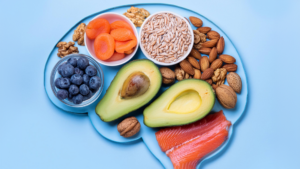The Brain in Your Belly: Understanding the Gut-Brain Axis
We’ve all had that gut feeling — a twist in the stomach before a big decision, or those jittery butterflies before stepping on stage. As it turns out, that “gut instinct” is more than just a metaphor. Your gut and your brain are in constant conversation, and that relationship runs deeper than most people realize.
Yep, your belly might be thinking more than you thought.
So… Your Gut Can Think?
Kind of. There’s something called the enteric nervous system — a network of neurons embedded in the walls of your digestive tract. It’s sometimes called the “second brain,” and while it won’t help you solve math problems, it does a whole lot more than just move food along.
This system controls digestion on its own, but it also sends signals to your actual brain. The two talk through nerves (especially the vagus nerve) and even through chemical messengers.
Meet the Microbiome: Your Gut’s Roommates
Inside your gut lives a massive crowd of bacteria, viruses, and fungi — trillions of them. This collection of microbes is called your microbiome, and it’s basically a busy little factory that helps with digestion, supports your immune system, and even influences your mood.
Here’s the wild part: your gut bacteria help make important chemicals like serotonin, which affects how you feel. In fact, most of the body’s serotonin is made in the gut, not the brain.
When your gut bacteria are in balance, everything tends to work better — your digestion, your energy, and yes, even your mental clarity and emotional stability.
That Gut Feeling? It’s Real.
The gut and brain are in constant communication. When one’s out of whack, the other usually feels it too. That’s why things like stress, anxiety, or lack of sleep can mess with your digestion. And on the flip side, poor gut health has been linked to things like mood swings, brain fog, and even depression.
Some studies are even exploring how gut health connects to more complex conditions like autism or Parkinson’s — the research is still evolving, but the idea is simple: your brain and belly are a team.
Take Care of Your Gut, Take Care of Your Mind
Keeping your gut happy doesn’t have to be complicated. A few small changes can make a big difference:
-
Eat more plants – fiber feeds good bacteria
-
Go for fermented stuff – like yogurt, kimchi, or kefir
-
Cut back on junk – processed foods mess with your gut’s balance
-
Move your body – exercise helps digestion and reduces stress
-
Breathe – seriously, managing stress keeps your whole system calmer
Your gut is more than just where food goes — it’s a key part of your mental and physical well-being. So next time your stomach tries to tell you something, don’t brush it off. There’s real wisdom in those gut feelings.

